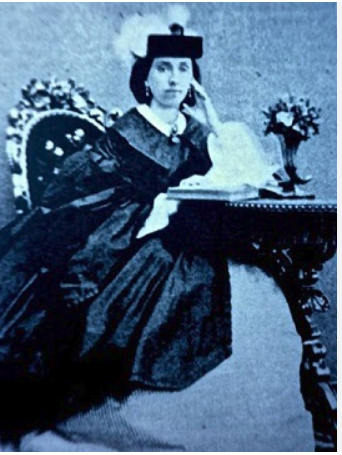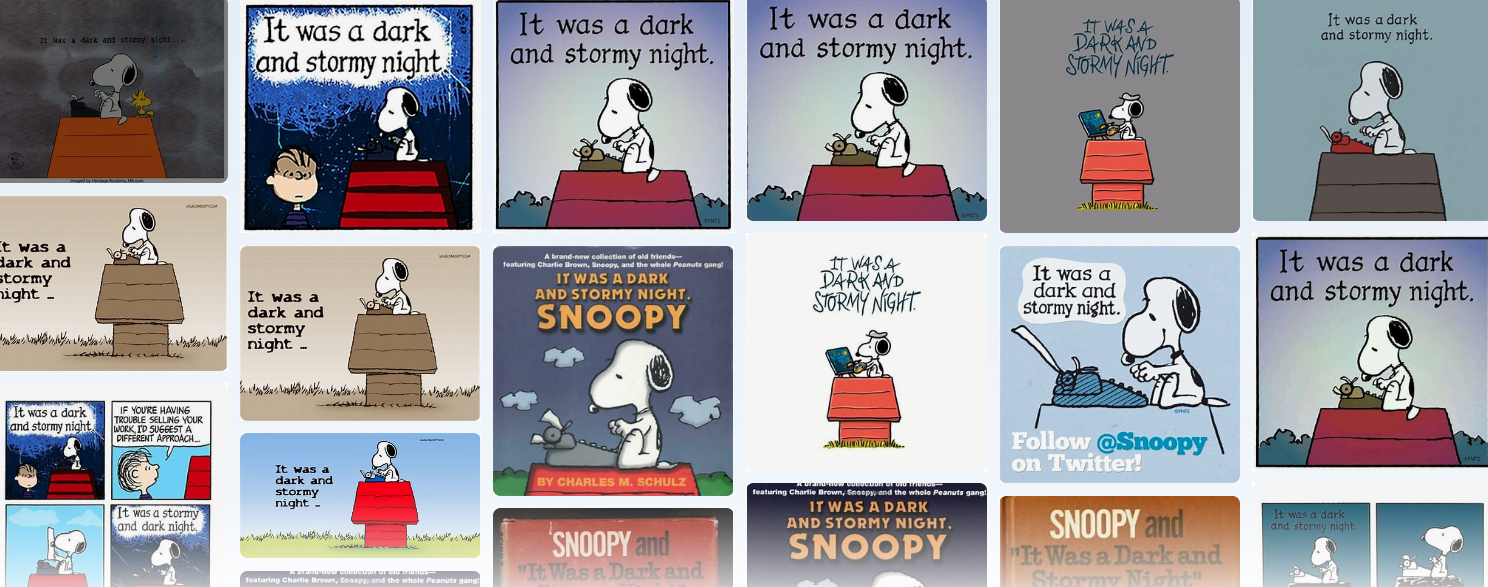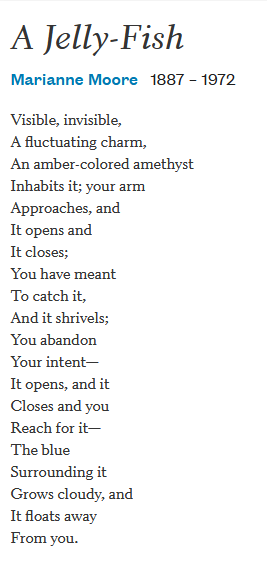Poetry Challenge #329-Festival of Sleep
Happy Festival of Sleep Day (Jan 3)! It’s not a national holiday, so you won’t get the day off from work or school. This silly holiday is all about sleep.
It’s a day to catch up on Zs after the bustle of the holidays.
It’s a day to think about ways to improve your own sleep cycle. (The right jammies really do make a difference…here’s proof.)
Cindy’s nephew Gavin & niece Keira with their dog Rosie chilling in their cozy Christmas jammies are all set!
Aiden, Dylan, Ben & Jack all cozied up for after all the Ho-Ho-Holidays!
(Ernie’s waiting for a sign from Jack…or maybe a treat…)
It’s a day to take a nap!
We said “sleep” grands…”sleep!
“ Please say you’re feeling sleepy. . .
(backsides to front: Ben, Aiden, Dylan & Jack.)
And, after all the ho-ho-holidays, Festival of Sleep Day is a day to join us for the 7-minute challenge!
Poetry Challenge #329
The Quick Brown Fox . . . . . .
Before you cozy up with your softest blanket, pillows, a good book or movie, write an alphabet poem about something to do with sleep.
Begin each line of your poem with a letter of the alphabet—in order. Can you make it all the way from A to ZZZZZZZZZZZZZZZ?
Set Your Timer for 7 Minutes
Start Writing!
Don’t Think About it, Write It!
YOU WILL GO TO SLEEP . . . OR ELSE!
HAPPY 2024 Y’ALL! Wishing you a year of creative living!
Cindy Faughnan and I began this 7-Minute Poetry Challenge 2700+ days ago. Now we take turns creating prompts to share with you. Our hope is that creatives—children & adults—will use our prompts as springboards to word play time. If you join us in the Challenge, let us know by posting the title, a note, or if you want, the whole poem in the comments.
Click on Fishbowl link and sign up to receive email notifications from Kelly's blog (aka The Fishbowl):
All who subscribe, comment or share a poem will be entered in . . .
Poetry Challenge #328-Into The Wilde
Who hasn’t heard of Oscar Wilde—so aptly surnamed? Imagine, even he had a mother (and a brother named Willie) Better yet, an Irish poet mother, and a Lady at that! What’s more, December 27 marks the 200th anniversary of Oscar’s mother, Lady Jane Wilde’s birth.
Oscar’s mother, born Jane Francesca Elgee on December 27, 1823 in Wexford, was a force! And a poet with a particular penchant for Irish poetry and folktales.
Below is a photograph of Lady Jane’s notoriously wild son, Oscar (standing) and Willie (right) with friends. According to unconfirmable sources, the photo was taken at Oxford in 1875.
It’s said Lady Jane Wilde she wrote under the name “Speranza” but hard as I tried, none of the search engines on my laptop could find an examples of her poetry.
But. . .
You can find out all about Jane and her poetry in this highly-reviewed biography by Eibhear Walshe. (Don’t think you’ll have a tough time recalling the title.)
Walshe’s book shows Lady Jane to be an outspoken and accomplished scholar, writer, translator and social commentator and fierce supporter of the Irish cause. Her list of books of Goodreads is extensive—check it out!
Now, back to the subject at hand: Poetry! Below is the beginning of Lady Jane Wilde’s poem, Sign of the Times—just a taste. Read the rest of the poem, and more by Lady Jane Wilde here.
Poetry Challenge #328
Into the Wilde
In honor of Lady Jane Wilde and . . .
Because it’s National Fruitcake Day, write a nutty poem.
Pack it with fruits and nutty bits—and if you rhyme, set an odd rhyming pattern—because that’s how I imagine Lady Jane Wilde liked it!
Set Your Timer for 7 Minutes
Start Writing!
Don’t Think About it, Write It!
If this fruitcake has your mouth watering, Collins Street Bakery in Corsicana, Texas has been baking fruitcake since 1868 (who know Lady Jane Wilde may well have tasted one) as Collins Street ships everywhere—but it’s not open on Christmas Day…I know. I tried stopping in.
Cindy Faughnan and I began this 7-Minute Poetry Challenge 2700+ days ago. Now we take turns creating prompts to share with you. Our hope is that creatives—children & adults—will use our prompts as springboards to word play time. If you join us in the Challenge, let us know by posting the title, a note, or if you want, the whole poem in the comments.
Click on Fishbowl link and sign up to receive email notifications from Kelly's blog (aka The Fishbowl):
All who subscribe, comment or share a poem will be entered in . . .
Poetry Challenge #327-Idioma Can Be Catching
The idiom “Dot your i’s and cross your t’s” means that you pay attention to every little detail. It’s often used to express irritation for how long something takes for work that seems unnecessary. Or maybe it shows admiration for how carefully someone does a task.
Idioms often can’t be understood by looking at the meanings of the words involved.
Often an idiom means something different from the way it sounds which makes it harder to understand for a non-native speaker of the language (every language has its own idioms!).
Poetry Challenge #327
Idioma Can Be Catching
For today’s poem —December 12 is National Dot Your I’s Day after all!—choose an idiom from the list below. Write a poem that begins or ends with the idiom. Idioms in writing are often used to add humor, a sense of place, or an idea to simplify a difficult idea.
a bird in the hand is worth two in the bush the drop of a hat
piece of cake back to the drawing board
bark up the wrong tree by the skin of your teeth
every cloud has a silver lining don’t count your chickens before they hatch
on cloud nine you can’t judge a book by its cover
walk on thin ice wild goose chase
Set Your Timer for 7 Minutes
Start Writing!
Don’t Think About it, Write It!
If after creating your poem, you’d like a more thorough explanation of idioms, watch/listen to German Lopez’ “Dot Your “I”s & Cross Your “T”s Explained”:
Cindy Faughnan and I began this 7-Minute Poetry Challenge 2700+ days ago. Now we take turns creating prompts to share with you. Our hope is that creatives—children & adults—will use our prompts as springboards to word play time. If you join us in the Challenge, let us know by posting the title, a note, or if you want, the whole poem in the comments.
Click on Fishbowl link and sign up to receive email notifications from Kelly's blog (aka The Fishbowl):
All who subscribe, comment or share a poem will be entered in . . .
Poetry Challenge #326-Every Picture
Rod Stewart’s album, Every Picture Tells A Story, was one of my favorites growing up—it was one I “bought” for a penny in one of those Album subscription services. Dang I loved those! It’s where most of my coveted vinyl collection was amassed. As I listen to Rod growling, Every Picture Tells a Story don’t it/whoo-whoo . . . I imagine Kenneth Patchen, our birthday poet (born in Niles, Ohio Dec 13, 1911), listening too while confined to bed with debilitating pain, he created his “Picture-Poems.”
Why celebrate Kenneth Patchen?
Because even though his poetry never received recognition from critics, he didn’t let that bother him one bit—it may even have emboldened him. And, as is often the case, with mainstream unpopular anything, Patchen’s poetry was especially popular with college students
Patchen passed on Jan 8, 1972, but his poetry is alive and well on Etsy, Ebay, Instagram, etc. as wall art/inspiration/oddity.
Patchen as a poet who like to play with form. Over the course of his career, which included about forty books, he created concrete poetry, drama, prose, multi-media poetry with John Cage and jazz poetry—which included two weeks in New York creating poetry jazz with Charlie Mingus—verse, the anti-novel, and painted books.
Henry Miller called Patchen "The Man of Anger and Light"
And, as shown in this poem “The Great Birds,” Patchen saw, admired, and singled out moments of beauty.
Poets.org noted, “The picture-poems are jazz-like in that they keep rhythm through the words and move through the seemingly child-like nature of the anti-linear creatures and figments of Patchen's imagination. They are celebrations of everyday playfulness as well as realizations of the sadnesses, humor and limitations of the body and mind.”
"It happens that very often my writing with pen is interrupted by my writing with brush, but I think of both as writing," said Patchen. "In other words, I don’t consider myself a painter. I think of myself as someone who has used the medium of painting in an attempt to extend."
Poetry Challenge #326
Every Picture . . .
Patchen’s Picture-Poems have been described as, “a unique genre of poetry which integrated his ideas of human nature, social protest, and creativity.”
For this prompt, create a picture poem, be it a poem that paints a picture, or if you dare to step away from the computer, draw a picture poem integrating art and drawings ala Patchen.
Who knows, maybe yours will sell on Ebay one day too!
Set Your Timer for 7 Minutes
Start Writing!
Don’t Think About it, Write It!
Cindy Faughnan and I began this 7-Minute Poetry Challenge 2700+ days ago. Now we take turns creating prompts to share with you. Our hope is that creatives—children & adults—will use our prompts as springboards to word play time. If you join us in the Challenge, let us know by posting the title, a note, or if you want, the whole poem in the comments.
Click on Fishbowl link and sign up to receive email notifications from Kelly's blog (aka The Fishbowl):
All who subscribe, comment or share a poem will be entered in . . .
Poetry Challenge #325-Heard it in a Song
Happy Birthday, Jason Reynolds! The way coolest poet I wish I knew . . .
Why? He helps reluctant readers—at-risk kids—find their superpower!
Jason Reynolds, born December 6, 1983, is an award-winning, NY Times Bestselling YA author and poet.
He won both a Newbery and a Printz Honor in 2018 for his book Long Way Down.
And from 2020-2022 served as
National Ambassador for Young People’s Literature.
Here’s one of Jason Reynold’s poems I Haven’t Gone Through it all:
Jason Reynolds began writing poetry because of a favorite album by Queen Latifah, Black Reign. He says poetry was a way for him to begin telling his stories.
In his novels, he writes about real issues for young readers, often using events he observed growing up
The premise for Ghost
happened to one of Jason’s friends when he was about 7.
Poetry Challenge #325
Heard it in a Song
Think about a song you really like. Look at the words to the song.
Let the song inspire you to write your own poem.
Set Your Timer for 7 Minutes
Start Writing!
Don’t Think About it, Write It!
Cindy Faughnan and I began this 7-Minute Poetry Challenge 2700+ days ago. Now we take turns creating prompts to share with you. Our hope is that creatives—children & adults—will use our prompts as springboards to word play time. If you join us in the Challenge, let us know by posting the title, a note, or if you want, the whole poem in the comments.
Click on Fishbowl link and sign up to receive email notifications from Kelly's blog (aka The Fishbowl):
All who subscribe, comment or share a poem will be entered in . . .
Poetry Challenge #324-But for a Wrinkle . . .
“It was a dark and stormy night…”
Which author penned it first? Hint: the answer isn’t Snoopy.
It’s sort of a trick question actually for, according to dictionary.com writers have been beginning stories with that line as long as night has fallen, rain has stormed, and people have been making up stories.
(For the record, the earliest published record noted was “The English novelist, playwright, and politician Sir Edward George Earle Bulwer-Lytton used the line to open his 1830 book Paul Clifford.)
But most famously, Snoopy aside, “It was a dark and stormy night,” is line one of chapter one of A Wrinkle in Time written by our poet/writer of the week, Madeline L’Engle.
Madeleine was born on November 29th, 1918 in New York City to a pianist mother and mystery writer father. Of her childhood she once told a journalist she
“…Saw little of the stars and not enough of her parents,”
which left her endless time to read, make up stories and write.
“Little” became almost nothing when at 12, her parents moved to the French Alps and Madeline was sent to English Boarding School. (Maybe English Boarding School is the secret ingredient for writing success???) or not.
Madeline crossed the pond to do high school at Ashley Hall in South Carolina-wrote
Went to Smith-wrote
Moved to Greenwich Village-wrote-
Worked in theater-wrote
and published 2 novels-
Married Hugh Franklin-wrote
Hugh who?????
Who knew Madeline L’Engle was married to a soap opera star???
Madeline and Hugh had 3 kids-Madeline wrote- they bought a defunct general store in Connecticut. She wrote-became a librarian-wrote. . .
A Wrinkle in Time didn’t fit publishers’ mold or lists.
Editors didn’t think it would sell.
It took more than 2 years—25-40 rejections by Madeline’s own count—before Farrar, Straus & Giroux published A Wrinkle in Time in 1962.
“If I’ve ever written a book that says what I believe about God and the universe, this is it,”—L ’Engle’s journal June 2nd 1960
A Wrinkle in Time went on to win the prestigious 1963 Newbery medal and has sold over 16 million copies in more than 30 languages, and counting. In 1980, L’Engle won the National Book Award for A Swiftly Tilting Planet, paperback edition, (#4 in her Time Quintet). What a wrinkle . . .
Poetry Challenge #324
But for a Wrinkle . . .
Let’s use L ‘Engle’s basic list of ingredients to conjure up a poem titled “It Was a Dark and Stormy Night.”
Storm
Stranger
Wind
Time
Wrinkle
Use any/all of the ingredients above, stir in some fantasy and Presto!
Set Your Timer for 7 Minutes
Start Writing!
Don’t Think About it, Write It!
Cindy Faughnan and I began this 7-Minute Poetry Challenge 2700+ days ago. Now we take turns creating prompts to share with you. Our hope is that creatives—children & adults—will use our prompts as springboards to word play time. If you join us in the Challenge, let us know by posting the title, a note, or if you want, the whole poem in the comments.
Click on Fishbowl link and sign up to receive email notifications from Kelly's blog (aka The Fishbowl):
All who subscribe, comment or share a poem will be entered in . . .
Poetry Challenge #323-Zoom-Room
What the heck are you doing reading this?
Don’t you know it’s National Go For a Ride Day! (Nov 22.) A day set aside to throw responsibility to the wind, bundle up and go for a ride! (Although choose one of your more modest scarfs, we don’t want you to go all Isadora Duncan…
National Go For a Ride Day!
My Side of the Car by Kate Feiffer, illustrated by Jules Feiffer tells the story about a trip to the zoo. It seems this trip has been put off several times, and the young main character is determined to not have it put off again. When it begins to rain and her dad mentions it, she tells him the rain isn’t on her side of the car.
Go For a Ride Music Video by Rockabye Beats (warning: it is an earworm):
Poetry Challenge #323
Zoom-Zoom
Think of a car ride you went on. Where were you going? Who was with you? How long did it take? What did you see out your window? What could have stopped you from going? Was the trip worth it?
Write a poem describing the ride.
Beep-Beep Beep-Beep Yeah!
Set Your Timer for 7 Minutes
Start Writing!
Don’t Think About it, Write It!
Cindy Faughnan and I began this 7-Minute Poetry Challenge 2700+ days ago. Now we take turns creating prompts to share with you. Our hope is that creatives—children & adults—will use our prompts as springboards to word play time. If you join us in the Challenge, let us know by posting the title, a note, or if you want, the whole poem in the comments.
Click on Fishbowl link and sign up to receive email notifications from Kelly's blog (aka The Fishbowl):
All who subscribe, comment or share a poem will be entered in . . .
Poetry Challenge #322-Animal Within
If this image of our poet-of-the-week whirling down the street in a cape and tricorn hat calls to mind Yankee Doodle, and you’d be half right. Marianne Moore was no Yankee, but she did doodle.
Marianne Moore (Nov. 15, 1887-Feb. 5, 1972) was a “highly regarded as a poet during her lifetime and even became a minor celebrity, featured in magazines such as Life, the New York Times, and The New Yorker.”—poetryfoundation.com bio.
She was so highly regarded for her “modernist” way with words that Ford Motor Company asked her to come up with names for a new series of cars. Alas, they rejected her suggestions.
Moore “stands as the greatest American modernist – of those poets who remained in America,” ala poetry foundation. (Which prompts curious minds to wonder: Where did the other modernist poets go?) A question for another day. A timelier question for this prompt might be: What is modernist poetry?
Modernist Poetry “rose” from the ashes of “The Great War,” WW1. Poets reacting to the horrors of war wouldn’t put their pen to “romantic” topics favored by earlier poets—nature or love in tidily metered and rhyming stanzas—favored by earlier poets. Modernists wrote about real-world events such as war and death.
Moore was a Bryn Mawr gal, who studied history and biology—her interests that leaked into her poetry, hence the title and subject of her first published poem “A Jelly-Fish”:
“Despite lacking regular rhythm, or meter, it [Modernist Poetry] still reads like poetry because it has meaningful imagery, symbolism, and alliteration. Free verse allows poets to experiment with rhythm and sound in ways that traditional forms do not allow. By breaking the formal conventions of the past, authors could experiment with language and express themselves more freely.”
Moore’s Collected Poems (1951) won both the Pulitzer Prize in poetry and the National Book Award, and in 1953 she was awarded Yale’s Bollingen Prize.
Poetry Challenge #322
Animal Within
Channel Mariane Moore’s modernist leaning for today’s prompt, by casting off by going light on the rhyme and meter but heavier on the imagery, alliteration and other poetic devices. And because
“She [Marianne Moore] frequently used animals as a central image to emphasize themes of independence, honesty, and the integration of art and nature.”—Poetry Foundation
Give your poem an animal name title. ROAR!
Set Your Timer for 7 Minutes
Start Writing!
Don’t Think About it, Write It!
Want more Moore? Here’s a link to 10 of Marianne Moore’s Best Poems.
Cindy Faughnan and I began this 7-Minute Poetry Challenge 2700+ days ago. Now we take turns creating prompts to share with you. Our hope is that creatives—children & adults—will use our prompts as springboards to word play time. If you join us in the Challenge, let us know by posting the title, a note, or if you want, the whole poem in the comments.
Click on Fishbowl link and sign up to receive email notifications from Kelly's blog (aka The Fishbowl):
All who subscribe, comment or share a poem will be entered in . . .

















































